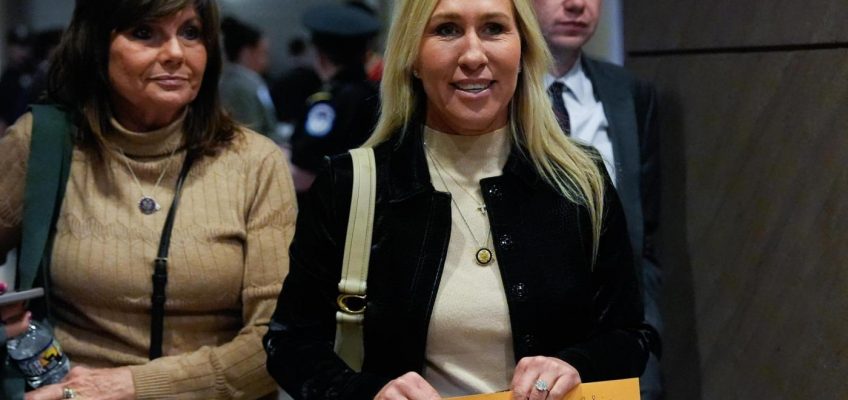By Robbie Sequeira, Stateline.org
Twenty-year-old Mikayla Foreman knows her experience is meaningful. Dealing with homelessness since 18 and currently living in a shelter, Foreman has managed to continue her academic journey, studying for exams last month in hopes of attaining a nursing degree.
But Foreman believes there were intervention points that could’ve prevented her from experiencing homelessness in the first place.
“If someone in school had understood what I was going through, things could’ve been very different,” she said in an interview with Stateline.
As more cities impose bans, fines or jail time for adults living on the streets, young people who have been homeless say they face unique problems that could have been addressed earlier. Through more than 400 interviews and survey responses, young people across the country recently told researchers how earlier guidance and intervention might have made a difference for them. The research suggests the country is missing its biggest opportunity to prevent youth homelessness — by intervening well before a young person reaches a shelter and years before they are chronically homeless.
The report, from Covenant House and the University of California, Berkeley, finds that the pathways into youth homelessness are different from those of adults experiencing temporary or chronic homelessness. A young person coming out to their family, or becoming pregnant, or experiencing untreated trauma can create conflicts that push them into homelessness. A lot of that doesn’t show up in current data.
The survey responses offer the nation’s schools and social services agencies the chance to get ahead of youth homelessness, researchers say, not only by intervening earlier, but also by pinpointing and responding to the diversity of needs among teenagers and young adults who might be close to losing their housing.
Advocates say there are multiple intervention points — in school, in child welfare organizations and inside family dynamics — where the worst outcomes can be avoided. States such as California, Florida, Hawaii, Oregon and Washington have explored some of those intervention points in policies that range from guaranteed income pilot programs to youth-specific rental assistance and campus housing protections.
Hawaii has made its youth drop-in and crisis-diversion program permanent, and Oregon and Washington have expanded rental assistance and education-centered supports for vulnerable youth. Florida now requires colleges to prioritize housing for homeless and foster students.
“With young people, we have opportunities to intervene much further upstream — in schools, in families, in child welfare — before anyone has to spend a single night on the streets. That’s simply not the case with older adults,” said David Howard, former senior vice president for Covenant House and a co-author of the new research, in an interview with Stateline.
“Even at 18, 20 or 24 [years old], young people are still developing,” Howard said. “Their vulnerabilities look very different from middle-aged adults, and the support systems they need are different too.”
One of the key points of intervention for potentially homeless youth is school. Public schools across the country have increasingly reported more homeless students since the COVID-19 pandemic.
And homelessness has many various regional factors outside of individual circumstances, such as climate-driven homelessness. More than 5,100 students in Florida, Georgia, North Carolina and South Carolina became homeless as a result of hurricanes Helene and Milton in 2024.
“Homelessness is multifaceted and lots of us slip through the cracks because the system isn’t designed for our reality,” said Foreman, a former Covenant House resident who helped conduct the new research.
Foreman’s insights and lived experience were included in the study, which showed that youth homelessness rarely begins with an eviction or job loss — frequent causes of homelessness among adults.
Related Articles
Ex-Arizona lawmaker who questioned election integrity gets probation for using forged signatures
Here’s what to know about the unprecedented changes to child vaccine recommendations
Wall Street rises on Big Tech gains and approaches records
Tim Walz’s 17-month roller coaster: A sudden rise, then a ‘tough fight’
Officer did nothing until it was too late during Uvalde school shooting, prosecutor says
The top three reasons that young people experience homelessness for the first time, according to respondents, were being kicked out of their family homes, running away, and leaving an unsafe living situation such as one affected by domestic violence. Other instigators included being unable to afford housing, aging out of foster care, being kicked out of or running away from foster care, and moving away from gang violence.
However, respondents also had suggestions for ways government, schools and the community could help or prevent youth homelessness. They suggested youth-specific housing options, identifying and helping at-risk youth in health care settings, providing direct cash assistance and offering conflict resolution support within families.
Among the most common suggestions was to offer services that create long-lasting connections for young people.
“Strong relationships with non-parental adults, including mentors, teachers, service providers, and elders, were identified as especially important when family connections were strained or absent,” the report said.
The surveys and interviews also demonstrated that young people want mental health care tailored to their personal experience, said Benjamin Parry, a lead researcher on the report, speaking during a September webinar hosted by Point Source Youth, a nonprofit that works to end youth homelessness.
The research breaks out responses from a few specific groups — Indigenous, Latino, immigrant, LGBTQ+ people of color and pregnant or parenting youth — to understand their distinct needs, said Parry, a postdoctoral researcher at the University of California, Berkeley’s School of Public Health. “There’s so much nuance and specificity within these different groups.”
Indigenous youth, for example, often are dealing with the effects of intergenerational trauma and alcoholism that have been projected onto them, Parry said. Those young people have far different needs than pregnant or parenting youth, he noted.
“They are like, ‘I don’t know where my next paycheck’s going to come from, I don’t know how to put food in my baby’s stomach, I don’t have a support network or someone to go to for this advice,’” he said. “That specificity is exactly why we need to understand this better and do better to tailor our approaches and responses.”
©2026 States Newsroom. Visit at stateline.org. Distributed by Tribune Content Agency, LLC.




